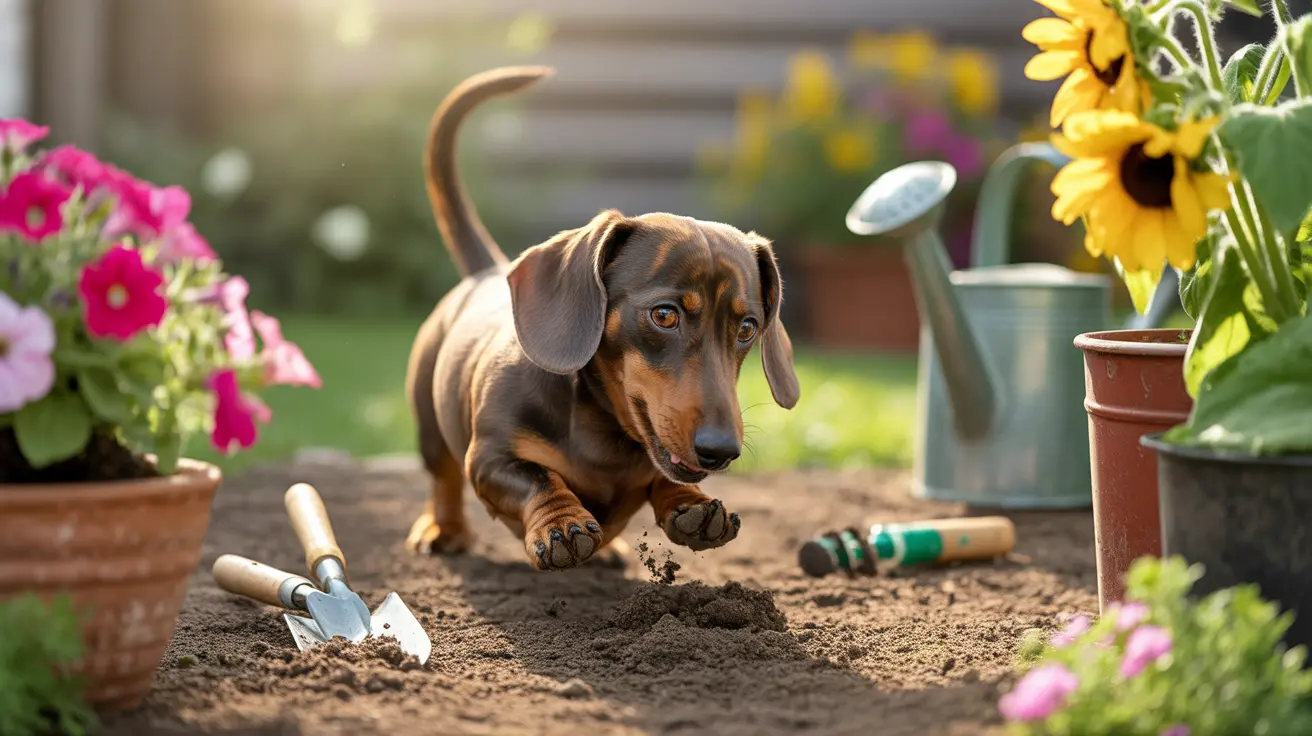If you've ever caught your furry friend frantically pawing at your garden or backyard, you're not alone. Dogs dig holes for various natural and instinctual reasons, and understanding these motivations is key to managing this behavior effectively. Let's explore why dogs engage in digging and learn practical solutions to protect your yard while respecting your pet's natural instincts.
The Natural Instincts Behind Dog Digging
Dogs have inherited digging behaviors from their wolf ancestors, making it as natural as barking or tail-wagging. This ancestral trait served multiple survival purposes, from hunting prey to creating shelter. Today's domestic dogs retain these instincts, even though they may not need them for survival.
Breed-Specific Digging Tendencies
Some dog breeds are more prone to digging than others, particularly those bred for hunting or working purposes. Terriers, Dachshunds, and Beagles were specifically developed to dig and pursue underground prey, making this behavior deeply ingrained in their DNA.
Common Reasons for Dog Digging
Hunting and Prey Drive
Many dogs dig because they detect underground movement from rodents, insects, or other small creatures. This behavior is particularly common in breeds with strong hunting instincts, who may spend hours pursuing these hidden targets.
Temperature Regulation
Dogs often dig to create cool resting spots during hot weather. This behavior is especially common in thick-coated breeds who need relief from summer heat. These shallow depressions provide natural air conditioning and comfort.
Anxiety and Boredom
Insufficient physical exercise or mental stimulation can lead to excessive digging. Dogs may dig as a way to release pent-up energy or cope with stress and anxiety. This type of digging often appears more frantic and persistent than other forms.
Effective Solutions for Managing Digging Behavior
Exercise and Environmental Enrichment
The key to reducing unwanted digging often lies in providing adequate physical and mental stimulation. Regular walks, interactive play sessions, and puzzle toys can help prevent boredom-related digging.
Creating a Designated Digging Area
Rather than trying to completely stop your dog from digging, consider creating a designated digging zone. This can be a sandbox or specific garden area where digging is allowed and even encouraged through positive reinforcement.
Supervision and Training
Consistent supervision and positive reinforcement training can help redirect digging behavior. When you catch your dog starting to dig in an unauthorized area, calmly interrupt and guide them to an appropriate activity or their designated digging spot.
Frequently Asked Questions
Why do dogs dig holes in the yard and how can I stop it?
Dogs dig holes due to instinct, boredom, hunting drive, or to create cool spots. To stop it, provide adequate exercise, create a designated digging area, and use positive reinforcement training to redirect the behavior.
What breeds are most likely to dig and why?
Terriers, Dachshunds, Beagles, and other hunting breeds are most prone to digging due to their breeding history for pursuing underground prey. These breeds have a natural instinct to dig and burrow.
Is digging a sign of anxiety or boredom in dogs?
Yes, excessive digging can indicate anxiety or boredom in dogs. If your dog seems compulsive about digging, they may need more exercise, mental stimulation, or attention to address underlying stress.
How do I create a designated digging area for my dog?
Create a designated digging area by setting up a sandbox or sectioning off a part of your yard. Fill it with loose soil or sand, bury some toys, and praise your dog when they dig there instead of elsewhere.
Can excessive digging harm my dog or my property?
Excessive digging can damage landscaping and create escape risks if dogs tunnel under fences. While digging itself isn't harmful to dogs, they could injure their paws or nails if the ground is too hard or contains sharp objects.






